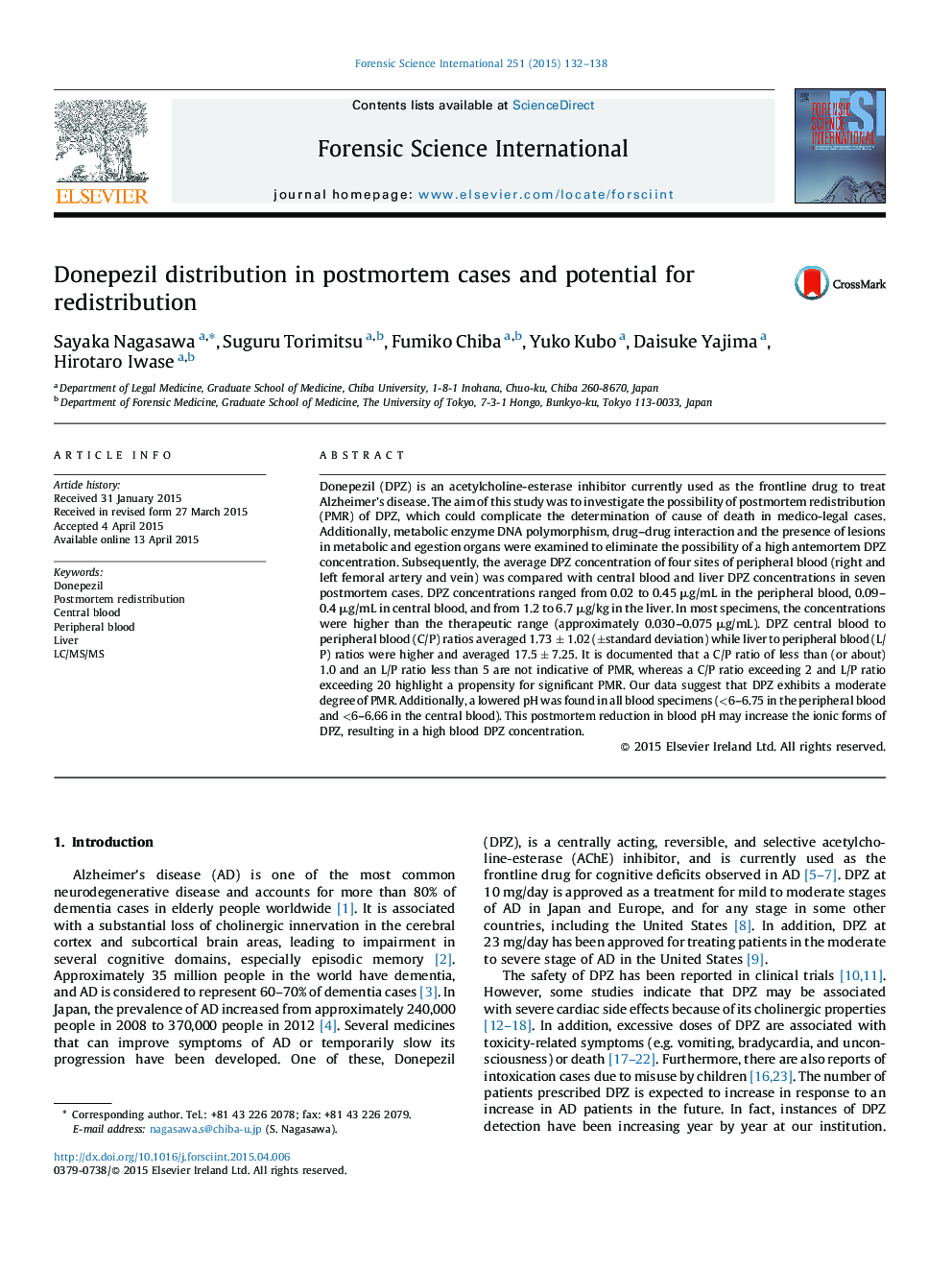| Article ID | Journal | Published Year | Pages | File Type |
|---|---|---|---|---|
| 6552163 | Forensic Science International | 2015 | 8 Pages |
Abstract
Donepezil (DPZ) is an acetylcholine-esterase inhibitor currently used as the frontline drug to treat Alzheimer's disease. The aim of this study was to investigate the possibility of postmortem redistribution (PMR) of DPZ, which could complicate the determination of cause of death in medico-legal cases. Additionally, metabolic enzyme DNA polymorphism, drug-drug interaction and the presence of lesions in metabolic and egestion organs were examined to eliminate the possibility of a high antemortem DPZ concentration. Subsequently, the average DPZ concentration of four sites of peripheral blood (right and left femoral artery and vein) was compared with central blood and liver DPZ concentrations in seven postmortem cases. DPZ concentrations ranged from 0.02 to 0.45 μg/mL in the peripheral blood, 0.09-0.4 μg/mL in central blood, and from 1.2 to 6.7 μg/kg in the liver. In most specimens, the concentrations were higher than the therapeutic range (approximately 0.030-0.075 μg/mL). DPZ central blood to peripheral blood (C/P) ratios averaged 1.73 ± 1.02 (±standard deviation) while liver to peripheral blood (L/P) ratios were higher and averaged 17.5 ± 7.25. It is documented that a C/P ratio of less than (or about) 1.0 and an L/P ratio less than 5 are not indicative of PMR, whereas a C/P ratio exceeding 2 and L/P ratio exceeding 20 highlight a propensity for significant PMR. Our data suggest that DPZ exhibits a moderate degree of PMR. Additionally, a lowered pH was found in all blood specimens (<6-6.75 in the peripheral blood and <6-6.66 in the central blood). This postmortem reduction in blood pH may increase the ionic forms of DPZ, resulting in a high blood DPZ concentration.
Related Topics
Physical Sciences and Engineering
Chemistry
Analytical Chemistry
Authors
Sayaka Nagasawa, Suguru Torimitsu, Fumiko Chiba, Yuko Kubo, Daisuke Yajima, Hirotaro Iwase,
